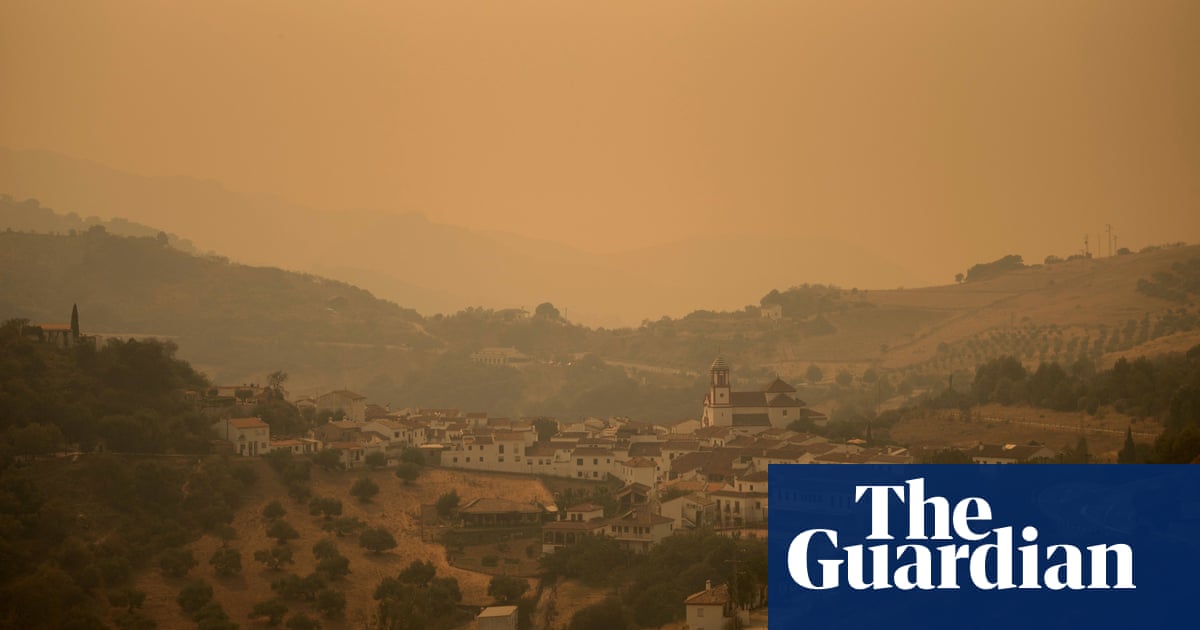Europes record summer impossible without global heating

The heatwaves and wildfires that caused devastation in Europe this summer would not have happened without global heating, new analysis shows.
The summer of 2021 was the hottest on record in the continent, with average temperatures about 1C above normal. The elevated heat caused wildfires and premature deaths.
Researchers have calculated how much more likely the climate crisis made the high temperatures. For almost all of the past 150 years, the expected frequency of a European summer as hot as 2021 was no higher than once every 10,000 years.
But since the 1990s, as carbon emissions continued to soar, the expected frequency has rocketed to reach once every three years.
The analysis is a stark reminder to the leaders meeting at the Cop26 climate summit in Glasgow that global heating is causing terrible damage to lives and livelihoods. If countries do not achieve drastic reductions in carbon emissions by 2030 and hit net zero by 2050, the record heat of 2021 will strike every year by the end of the century, the scientists say.
Despite the extraordinary increase in likelihood of record heat in recent years, Nikos Christidis at the Met Office, who led the analysis, said: “These kinds of results are no longer surprising. Climate change is already making our weather extremes more severe.â€
“Extreme events are the new norm,†said Prof Petteri Taalas, the head of the UN World Meteorological Organization. A European temperature record of 48.8C was set in Sicily in August. “Cop26 is a make-or-break opportunity to put us back on track,†Taalas said.
The analysis used 14 climate models and scores of model runs to calculate how frequently the record summer of 2021 is expected to occur in today’s human-influenced climate, compared with a climate with no human influence.
The research analysed the period from June to August and covered all of Europe, as far east as Yekaterinburg in Russia.
For large stretches of the 20th century, the estimated frequency of such a hot summer in a world without climate change was more than one in 10,000 years. “This event was so rare, it was nearly impossible to calculate a probability,†Christidis said.
The same scientific approach has shown clear links between global heating and other severe weather. The record-breaking heatwave in the Siberian Arctic in January and February 2020 was made at least 600 times more likely, while the terrible floods in Germany and Belgium in July were made up to nine times more likely.
Prof Peter Stott, also at the Met Office, said: “We can be more confident than we have ever been about linking extreme weather events to climate change. The science is clear that the faster we reduce our emissions of greenhouse gases, the more we can avoid the most severe impacts.â€
“The new study is another stark reminder of just what 1.2C [of global heating to date] means,†said Friederike Otto, at Imperial College London, who conducted the Siberian study. “I really do not want to imagine the summers we’d have at 2.7C.†She said looking at large regions gives a stronger climate change signal than smaller areas.
Bob Ward, a policy director at the Grantham Research Institute on Climate Change at the London School of Economics, said: “The study shows clearly that the severe intensity of this summer’s heatwave was due to man-made climate change resulting from the burning of fossil fuels and other human activities.
“The cost to humans and wildlife was substantial, with heatwave conditions killing people across the continent, and the enhanced evaporation of higher temperatures turning forests into fuel for devastating wildfires.
“These extreme temperature events in Europe will continue to increase in severity and frequency for at least the next 30 years, until the world reaches net zero emissions of greenhouse gases.â€
Other previous studies have shown an extreme heatwave in 2017 that saw deadly forest fires blazing in Portugal and Spain was made 10 times more likely by global warming. In Portugal, 64 people died. Previous work has also demonstrated floods in England and France â€" as far back as 2000 â€" were made significantly more likely by global heating.
0 Response to "Europes record summer impossible without global heating"
Post a Comment